Menstrual Hygiene Program Launched in Three Countries
/ By Kristina Goetz
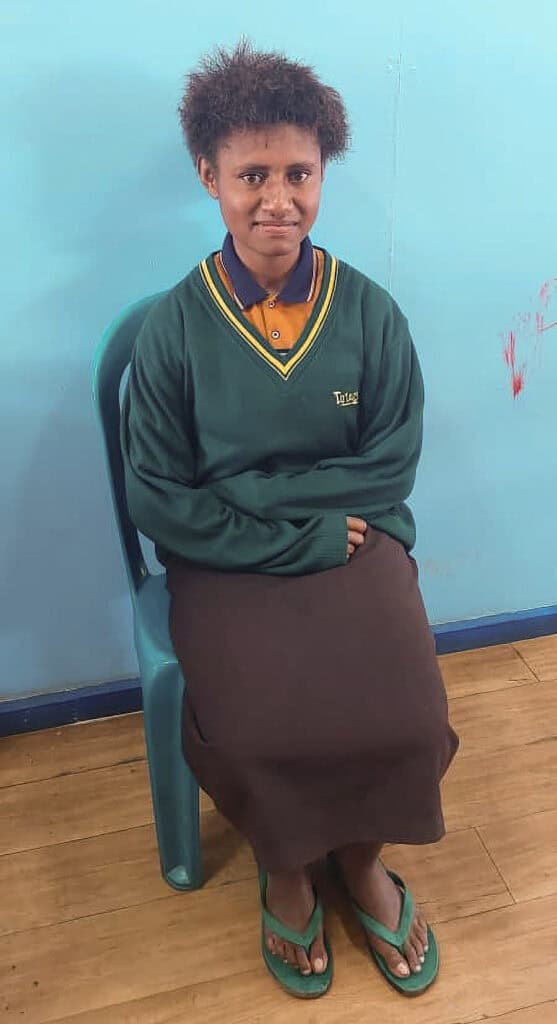
It only happened once, but that was enough for Nicole Gilberth. She was so ashamed she left her classroom and stayed outside the rest of the afternoon, watching younger children play and telling them stories instead of listening to her own teacher’s instruction.
The 16-year-old knew her parents would be upset if she left early so, she waited until the end of the school day and went home with the rest of her class.
Fellow students – even some of the girls – had laughed and made fun of her because she didn’t have a menstrual pad and bled through her clothes.
“I felt like crying, but I controlled my temper and stayed calm,” she said. “It happens to other girls also, and they feel the same as I felt.”
WaterStep has launched a groundbreaking pilot project focused on Menstrual Health Management (MHM) in Papua New Guinea, the Democratic Republic of Congo (DRC), and Kenya. This initiative, set to reach 1.3 million students over three years, will empower young girls by providing essential resources and education to improve menstrual health management and reduce barriers to school attendance.
Mando Lutheran Primary School and Mando Lutheran High School in PNG, where Nicole is a student, are among the first to be part of the project. WaterStep paid for reuseable pads and training for girls on how to use them, and are building a space so students can privately change clothes, use the toilet and wash up.
This MHM project by WaterStep aims to empower female students by improving menstrual health, reducing school absenteeism, and building confidence around menstrual cycles. To achieve this, WaterStep ensures that students have access to safe water and provide schools with BleachMakers to help sanitize reusable menstrual pads, hands, toilets, and other surfaces, and proper menstrual health education.
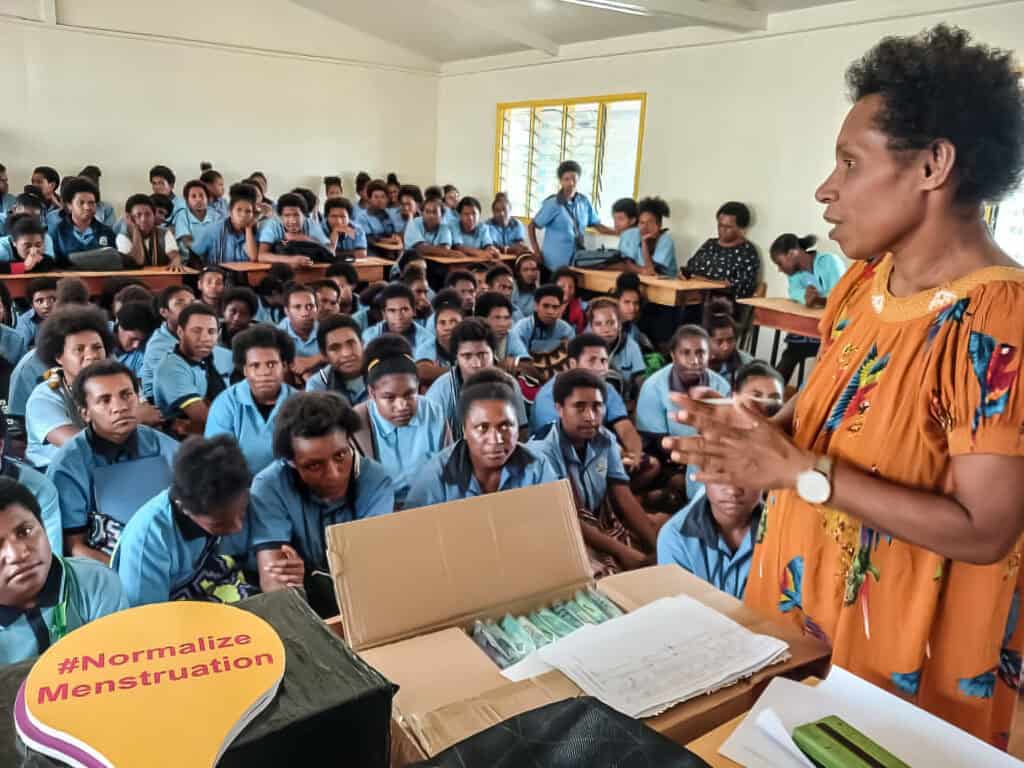
“When you give girls the tools to take control of their lives, they don’t just change their own world—they change everything around them,” said Mark Hogg, founder and CEO of WaterStep.
“Women and girls have always been the ones to push things forward. This project is about giving them the strength to stand tall, the confidence to know their value, and the belief that they can shape their own future. Once they see that power emerge, nothing can stop them, and they’ll show the world just how far they can go.”
A Timely Solution
In developing countries like Papua New Guinea, parents can’t afford to pay for menstruation pads for their daughters, so they miss several days of school each month, said Dorothy Guri Gimiseve, a senior teacher at the Mando Lutheran Primary School in the Eastern Highlands.
When a girl misses class, teachers can’t re-teach the lesson for a single student so she misses out, Dorothy said. She often suggests they copy notes from friends or what’s leftover on the board.
“But the most important thing is the explanation part of the lesson she missed,” she said.
Now that WaterStep has implemented the program, girls don’t have to leave.
“Words cannot express how we feel,” Dorothy said. “It has greatly impacted our school – a timely intervention. We love you all in WaterStep.”
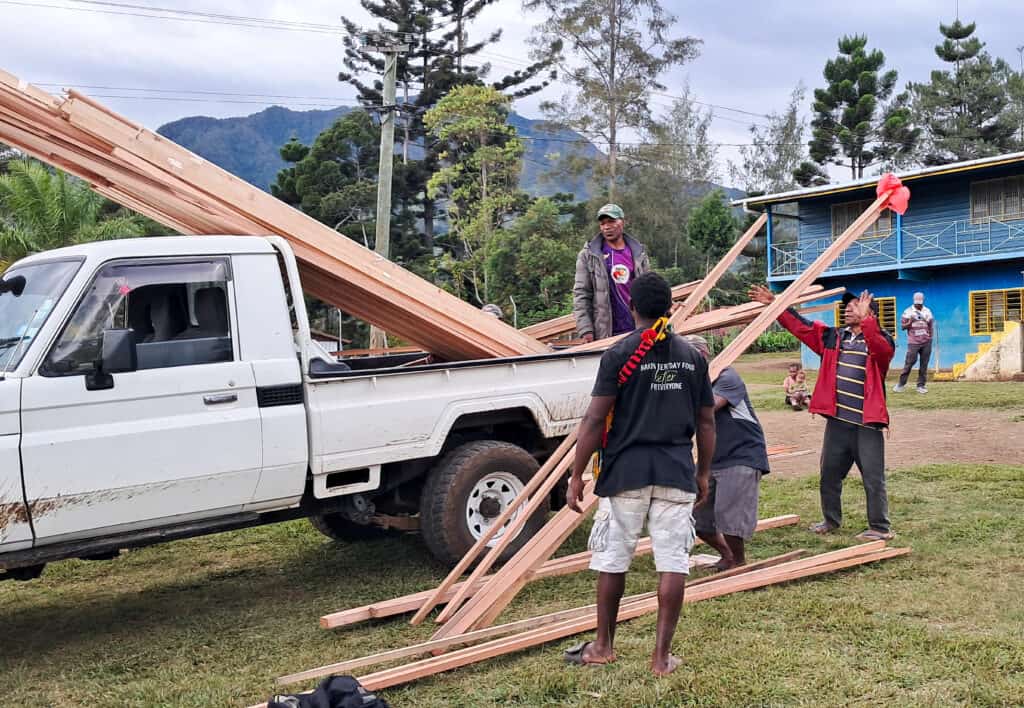
Anticipating Higher Test Scores
Right now, academic test scores show boys besting the girls, said Rhubbie Kapa, deputy principal of the high school.
“Sometimes we wonder what is the problem because, girls, some of them are smarter,” she said. “But then they sit for the exam, sometimes the boys beat them. So, one of the contributing factors could be when they miss classes and miss out on the lessons. That’s one thing that might have contributed to girls not performing well.
“With this, I believe it will greatly help our students. And this year, I believe we should see some changes because the girls are going to be concentrating. There will be no disturbance going home every month. I believe they will do better, and there may be a change.”
Boys Are Educated, Too
In Melanesian society, taboos still exist, Rhubbie said. Some topics like menstruation aren’t openly discussed. But that’s changing. And in the Mando schools, boys and girls are now learning together. In this training, the idea of pads was foreign to the boys. They didn’t quite understand what they were for at first. Some thought they were diapers packed in plastic.
“Even the male teachers were asking, ‘What is this?’ because it was the first time,” she said. “The girls were happy. The boys were also curious, and they wanted to know what it was and how it will be used.”
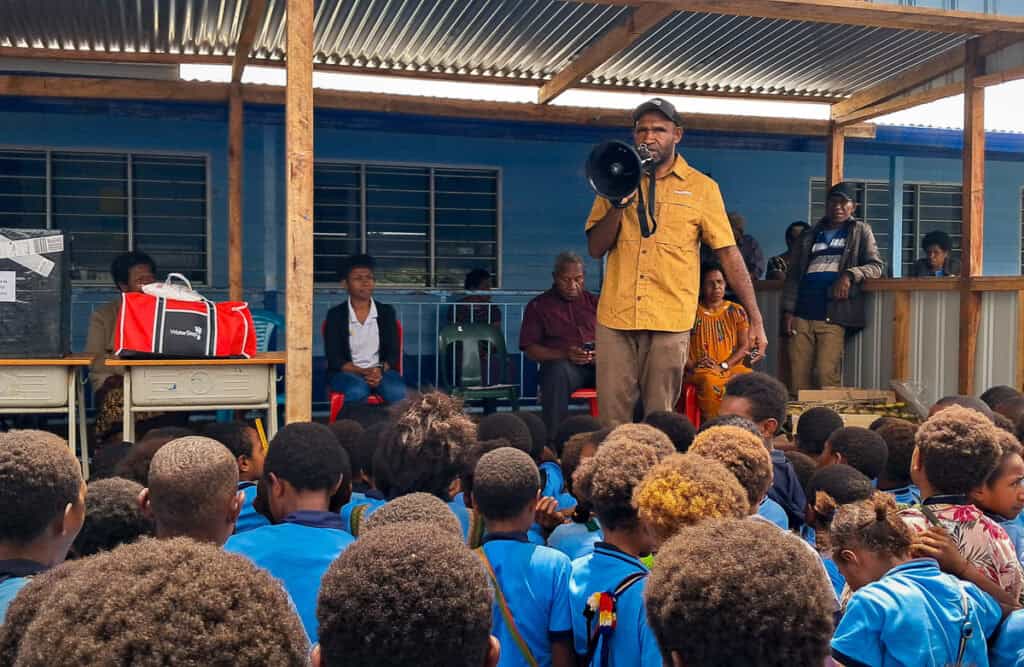
Mae Sipio, a male senior teacher who has been at the primary school for 30 years, appreciated the training for both girls and boys. Human development and reproduction are taught as part of the curriculum but only in theory, he said, not practicality.
This program changed that, not just in understanding but in how to manage. Instead of using dried leaves or rags, girls have reusable pads, and their male classmates now understand what’s happening to them every month.
“The boys have to understand and respect the rights of a female, how their body system works and all these things because we are starting to practice gender equity in the school,” he said.
“So, boys have to respect the girls. … One day they’re going to get married, and they’re going to have to understand their wives, and they have to understand their daughters when they have children. They have to accept it as part of normal life.”
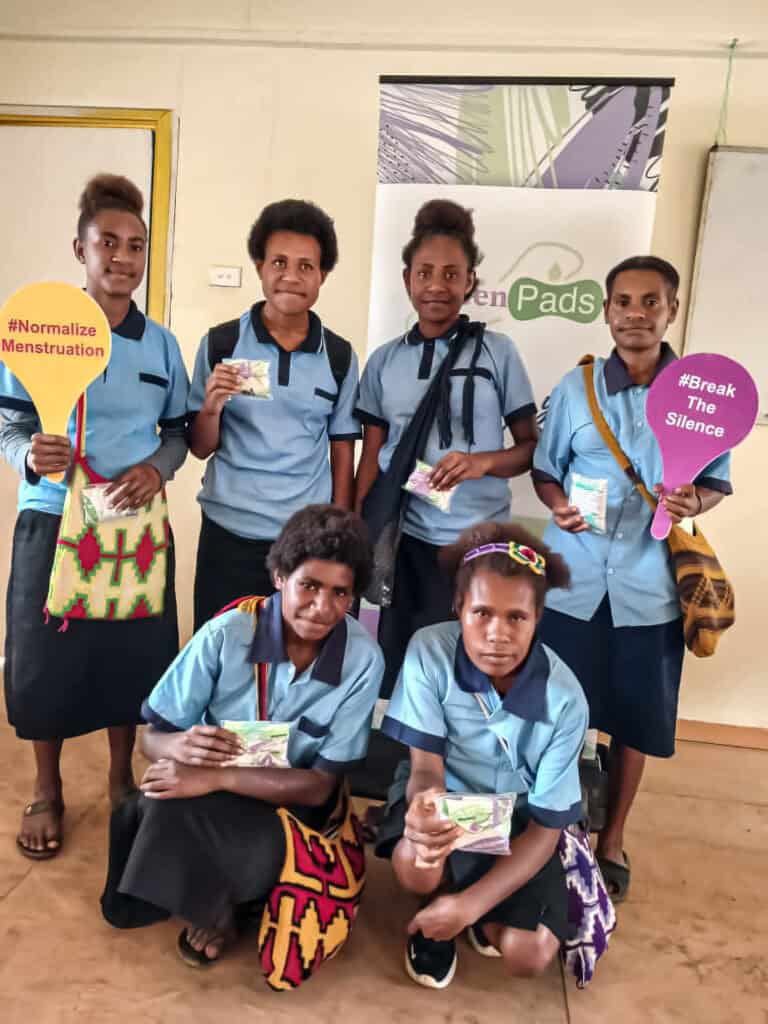
Project Expansion
The MHM project has already garnered strong support from school authorities and local communities. With the success of this pilot, WaterStep plans to scale the initiative, extending its reach to more schools and students across Papua New Guinea, DRC, and Kenya. Ultimately, 300,000 students in Papua New Guinea, 600,000 students in the DRC, and 400,000 students in Kenya will be reached in the next three years.
Sendra Albert, a bright 17-year-old in tenth grade, remembers how disappointed she was when she received her recent math scores on algebraic equations. She’d had to stay home a couple of days because of her period and didn’t understand the material well enough for the test.
“I really feel like I’m missing something, and I’m left behind, she said. “I was so unhappy about my marks.”
But the program and the reusable pads have given her more confidence.
“Our parents are poor, and they don’t have money to buy pads or bleach for us,” she said. “… It means to me a lot of things because it has really helped me, and I don’t know how to explain it because it’s such a blessing.”
Sendra’s classmate Nicole was overwhelmed by the change and surprised at the gift to her rural school.
“I’m so thankful for what you have done and love you all,” she said